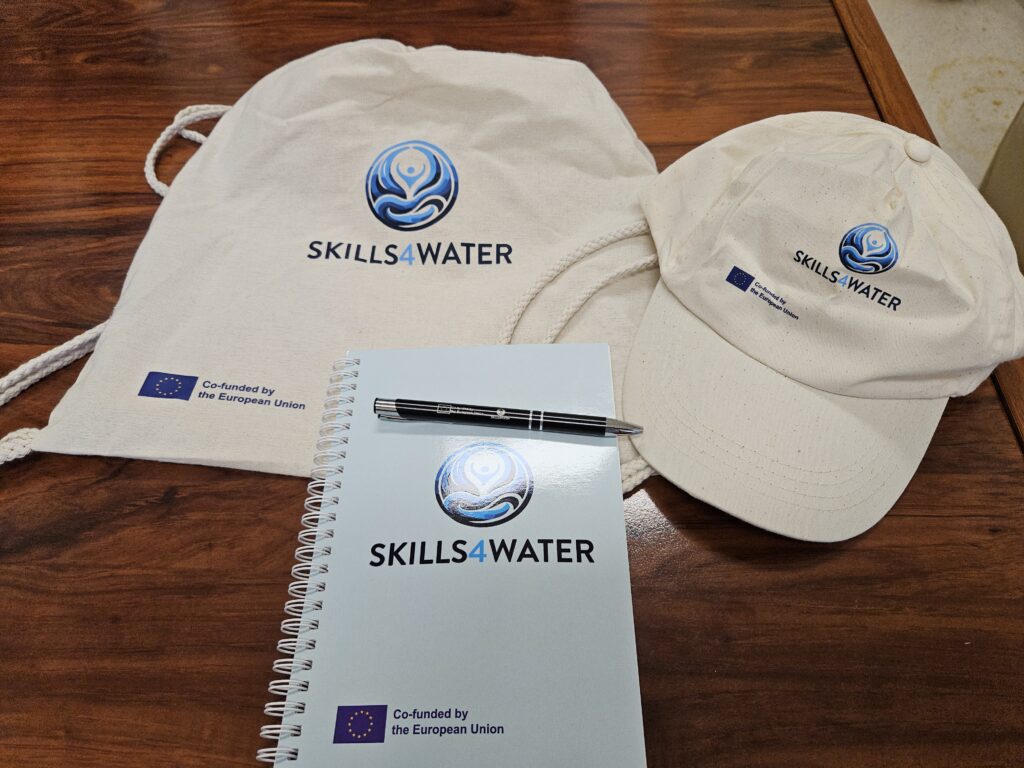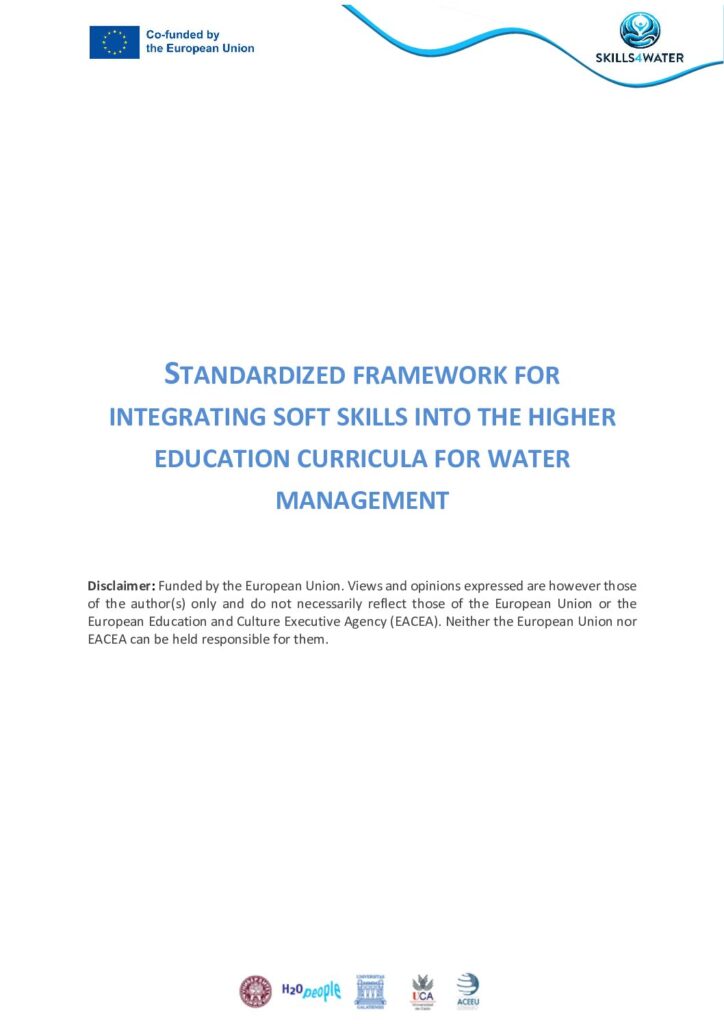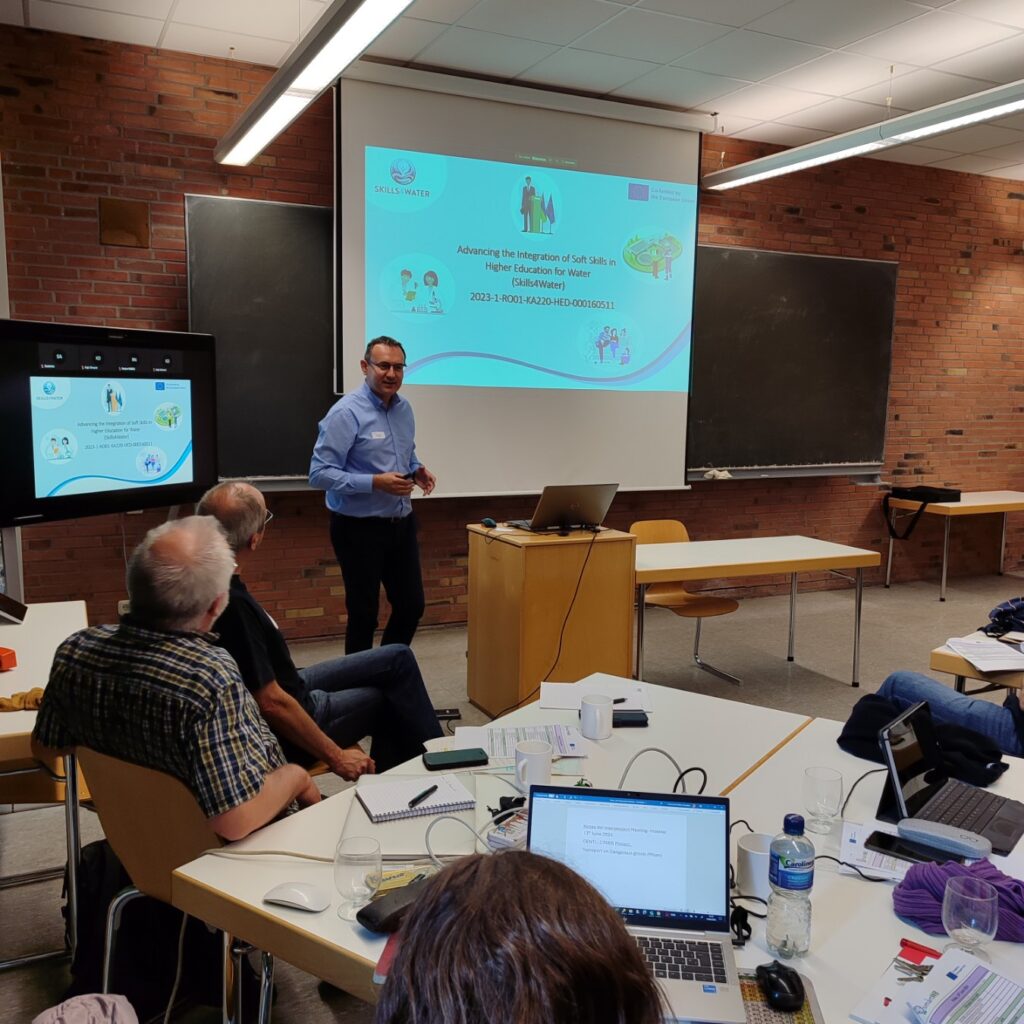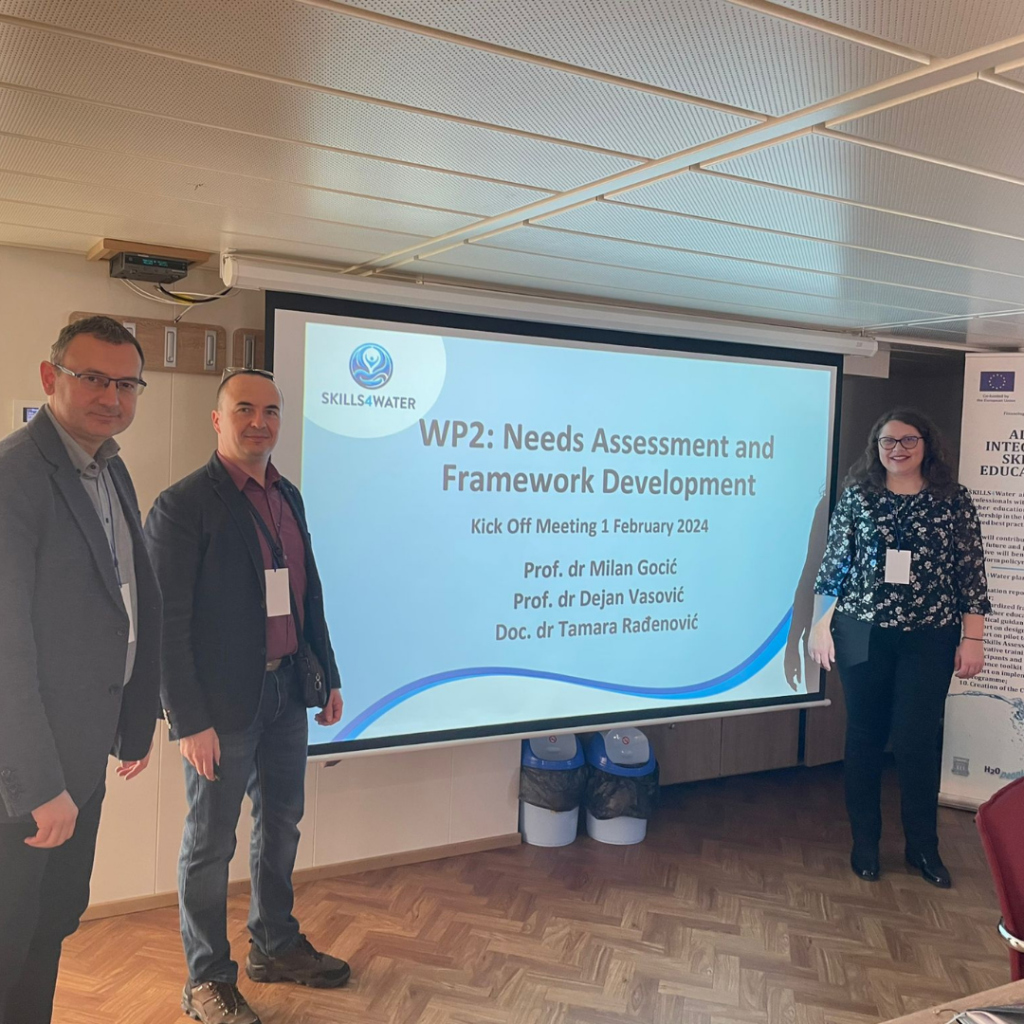Needs Assessment & Framework Development
The Needs Assessment of SKILLS4Water is pivotal in understanding and addressing the multifaceted needs within the water sector. This phase involves a thorough needs analysis, laying the foundation for the project’s objectives. Our focus here is to equip young water professionals and students with essential soft skills, integrating these skills into higher education curricula, and fostering a culture of leadership and innovation in the water industry. Moreover, this work package aims to bridge the gap between academia and industry, promoting the acquisition of soft skills by early-career water professionals. This initiative is a step towards contributing to a sustainable, resilient water future and fostering a community of practice around water-related issues.
The objectives:
O2.1. Identify the specific soft skills required for the water management industry workforce
O2.2. Develop a standardized framework for integrating soft skills into higher education curricula for water management.
The Needs assement aims to bridge the gap between the water industry needs and academic offerings, ultimately leading to the upscaled competencies and innovativeness of the workforce in the water sector. These specific objectives are aligned with the overall objective of the SKILLS4Water project to upscale the skills and competencies of young water professionals across European water market, integrate these skills into the higher education curricula, and foster a culture of leadership
and innovation in the water industry.
By conducting the need assessment in the water sector, SKILLS4Water will identify the current trends in the water market across Europe. In addition to the qualitative research in the field, analyses of the various secondary data and reports will provide necessary inputs for developing a standardized framework for integrating soft skills into the higher education curricula for water management, thus providing strong educational base for the future development of soft water related skills and
competences and creating supportive leadership and innovative culture in the water industry.
All this has strong potential to influence the sustainable and resilient water supply for the future generations by informing and guiding policy makers in developing effective water policies and strategies to address current and future water challenges.








